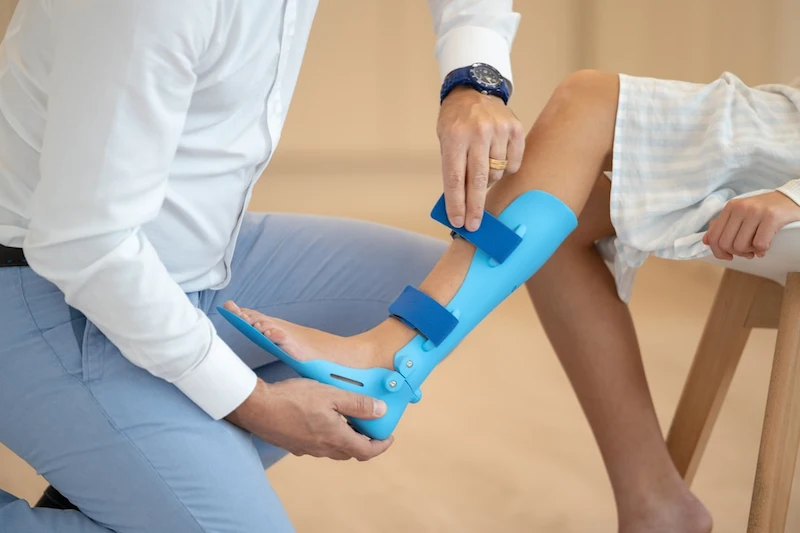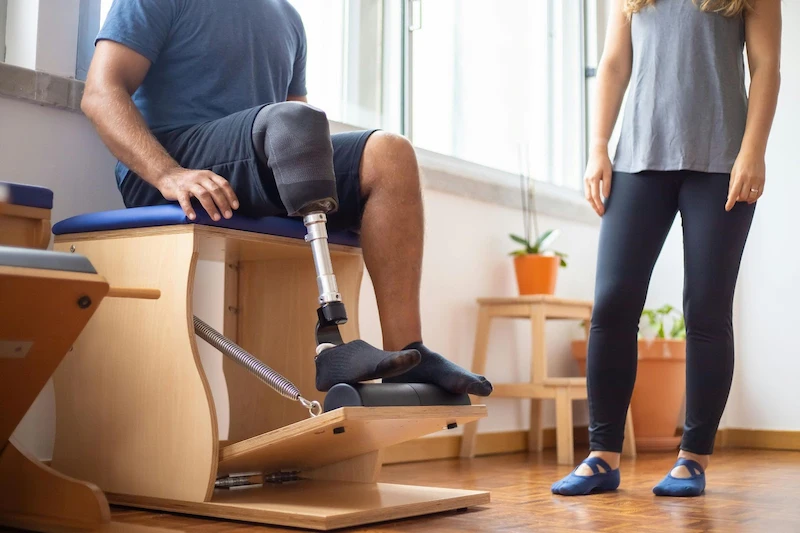Table of Contents
Choosing the right orthopedic professional can make a significant difference in your journey to recovery. Finding a skilled and reputable specialist is essential whether you’re dealing with a sports injury or a joint condition. Below are tips for selecting the right orthopedic professional to address your needs effectively.
Research Reputable Orthopedics Online
Before choosing an orthopedic professional, conducting a thorough online search for reputable providers is wise. Many well-regarded orthopedic practices have detailed websites where you can learn more about their services, specialties, and patient testimonials. Take time to explore the credentials of potential providers. This research can give you insight into the professional’s experience, qualifications, and approach to patient care. You can find helpful information here to ensure you’re looking into well-established orthopedics. Additionally, many websites provide valuable resources, including educational materials and details about the types of treatments offered. This information can help you feel confident in the quality of care your selected orthopedic professional provides.
Check the Orthopedic Credentials and Experience
Verifying their credentials is one of the most critical factors in choosing an orthopedic specialist. Board certification is essential, showing that the doctor has completed the necessary education, training, and exams to practice orthopedic medicine. You can confirm a doctor’s board certification status through the American Board of Medical Specialties (ABMS) or similar credentialing organizations. Beyond certification, check for memberships in professional organizations, like the American Academy of Orthopaedic Surgeons (AAOS). These affiliations are a good indicator of ongoing education and commitment to excellence in orthopedic care.
Experience is crucial when choosing an orthopedic specialist, especially if your case is complex or involves advanced procedures. Ask how long the doctor has been practicing and how often they perform the specific treatment or surgery you may need—the more experienced the doctor, the better their understanding of potential complications and successful outcomes. Orthopedic professionals specializing in particular areas—such as joint replacement, sports injuries, or spinal issues—can offer expertise that ensures precise and effective treatment. Look for a provider who regularly treats conditions like yours to ensure you’re in skilled hands.
Assess the Facility’s Technology and Techniques
Orthopedic medicine has evolved with the advancement of technology, making procedures more precise and less invasive. When choosing an orthopedic professional, inquire about the types of technology and techniques they use in their practice. State-of-the-art equipment, such as robotic-assisted surgery and imaging tools, can improve outcomes and shorten recovery times. Choose a provider that stays current with technological advancements and uses minimally invasive techniques when appropriate. Selecting a doctor who uses modern approaches will make you more likely to receive comprehensive care that prioritizes effectiveness and patient comfort.
Read Reviews and Patient Testimonials
Reviews and testimonials from other patients can offer valuable insight into an orthopedic provider’s care quality. Look for testimonials that mention specific experiences with the doctor, such as bedside manner, willingness to answer questions and treatment effectiveness. Positive feedback from patients can reassure you that the provider offers compassionate, patient-centered care. You can find reviews on healthcare websites, social media, or the provider’s website. However, remember to look for balanced reviews, considering positive and constructive feedback, to get a more comprehensive view of the provider’s reputation.
Prioritize Clear Communication
Clear communication is vital in any healthcare relationship, mainly when dealing with orthopedic issues that may require long-term treatment or surgery. During your initial consultation, assess how well the doctor listens to your concerns, explains treatment options, and addresses your questions. An excellent orthopedic specialist should make you feel comfortable and informed about your options. Communication is not limited to the doctor; the staff’s responsiveness and the availability of support materials also matter. A professional who values open communication will ensure you understand your condition, treatment choices, and any post-treatment steps needed for optimal recovery.
Evaluate Accessibility and Location

Orthopedic treatment often involves multiple visits for follow-up appointments, physical therapy, and possible rehabilitation. Choosing a provider whose office is accessible and conveniently located can ease the logistics of managing your treatment. Additionally, assess the office hours and appointment availability to ensure they align with your schedule. If you live in a rural area, consider whether the orthopedic facility offers telemedicine consultations. This option can be particularly beneficial for follow-up appointments, allowing you to communicate with your provider without frequent travel. Prioritizing accessibility will help you maintain consistency in your treatment plan.
Selecting the right orthopedic professional involves careful research and consideration. By exploring reputable websites, confirming credentials, and assessing the provider’s experience and communication style, you can make an informed choice that aligns with your health goals. A thorough selection process ensures you’re in capable hands as you work towards a successful recovery.
Want to explore something different? Understanding Mortgage Rates: What You Need to Know

